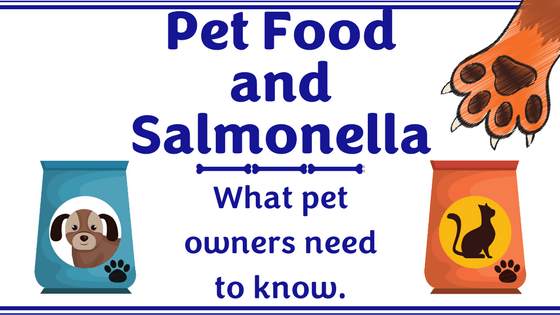 Summertime is picnic time.
Summertime is picnic time.
Yummy meals of hearty foods we all love eating together, outdoors on our decks, in our yards, or at public parks. As a community veterinarian with my public health knowledge, summer also brings mild concerns for food poisoning and outbreaks of Salmonella for picnic goers like me. We all know a bit about proper food handling in order to prevent this serious warm weather problem.
But what about preventing a more hidden and similarly sinister problem, every single day that involves food handling of a different type? I’m talking about feeding our beloved pets THEIR daily meals and treats, yet avoiding Salmonella food poisoning while doing so.
Why is this a concern?
Salmonella bacteria are commonly found in such foods as raw or undercooked meat, poultry, eggs, dairy products, as well as some raw fruits and vegetables. There are more than 1,000 different types of Salmonella, bacteria found living in the intestinal tract of many livestock used for consumption.
Just like many people foods, the proteins and meats going into pet foods come from some of these carrier animals. Regardless of where the livestock originate, the handling of these meat proteins as dietary ingredients may result in contamination with Salmonella bacteria during processing.
Hence, recalls of pet food occur regularly.
Salmonellosis in dogs can result in various signs and symptoms and may last a week or longer:
- fever
- lethargy
- diarrhea (with mucus or blood)
- vomiting
- anorexia
- dehydration
- weight loss,
- fast heart rate
- swollen lymph nodes
If your pet has consumed a recalled product AND has these symptoms, please contact your vet.
To confirm a diagnosis of salmonellosis, your veterinarian will examine your dog for different physical and lab findings (e.g. low albumin & platelet levels, anemia, low white blood cell count and electrolyte imbalances). Other tests may be necessary to be definitive.
Unfortunately, a dog infected with the bacteria will typically not show any clinical symptoms at all! Once Salmonella gets established in the pet’s gastrointestinal tract, the animal can shed the bacteria in its fecal matter, and the contamination will continue to spread in the local community.
Outpatient treatment is often possible in uncomplicated cases, although controversial. Yet, hospitalized care may be necessary, especially for puppies that have developed severe dehydration as a result of the infection.
So how can we avoid this condition from affecting our pets and us?
To reduce infection risks I recommend:
- washing hands after contact with pet food and pet bowls
- routinely cleaning pet bowls in a separate sink area from people dishes
- keeping children younger than age 5 away from pet food and feeding
- paying attention to recalled pet food lists and bulletins
Mark S Donovan, DVM
